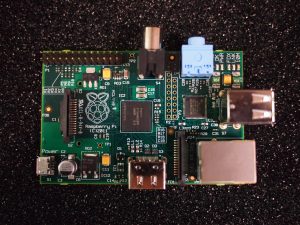To celebrate the new year, I’ve updated the blog’s look.
Blog
-

Christmas & New Year
I had a very busy holiday season this year. The Christmas weekend was spent with family and I had a lovely time. For the following weekend, we had some guests over, and I made three pizzas, an apple pie, shortbread cookies, and white bread – all from scratch. I was quite proud of myself.

Home-made pizza. Om nom. The week in between was quite hectic. Unlike my coworkers, I wasn’t able to take any time off. A deadline is impending, and I’m the only one able to get the project done in time. It means lots of work that falls squarely on my shoulders.
In a more cheerful twist, I’ve set a new resolution for this coming year: see a creative project through to the finish. The last significant endeavour in this regard I completed was my book Rice Tea, and that was three years ago. That’s not to say I’ve been sitting on my laurels: I engaged in queer activism and lost weight. But both my creative enterprises, Solaire and Docks, remain neglected.

The Raspberry Pi I have no motivation to see them to their conclusion. Things must change. So, I conceived of a new project: a visual programming language. I also found a source of motivation: I’m being sent a free Raspberry Pi in exchange for making this all happen using a new version of software tools distributed by Nokia. I’m keeping the scope of my project very limited so that I can actually see the end from the starting line.
I can do this. Right? Right. And maybe once that’s done, I’ll get to Docks. Haha.
-

The Myth of Free Will
The human mind is a complex biological machine. Much like its anthropogenic mechanical counterparts, if you reproduce it with infinite accuracy, the replica will be infinitely indistinguishable from the original.
In the case of the human mind, if there was a machine to reproduce my body both perfectly and instantaneously, and in which our exit from it was at random ends of a symmetrical room, there would be nothing to distinguish me from my copy. He would be every bit me as I – identical childhood memories, identical views, identical fears, identical speech synchronicities. At that moment in time of our exit from this imaginary contraption, my will would be known in its entirety to the person at the other end of the room.
Now imagine a computer simulation of a brain. My brain to be precise, with its exact genetic makeup stored in its vast data banks. Were you to simulate my life’s events with perfection to this virtual brain, including not just sensory inputs (sight, smells) but chemical influences as well (recreational drugs, hormones) you would also end up with a being that would be indistinguishable from myself in its thoughts. And were you to peek inside of it at any point in time, you would know exactly what I wanted at that time. My will. Were you to simulate all possible future outcomes, one simulated path would yield my will for the rest of my existence.
In fact, were you able to simulate the universe with perfect precision, in its entirety, you would know the will of every individual that inhabits the Earth. Not only that, but you would predict correctly all of their decisions for the rest of their life. And those of their children. And those of their children.
A device that could manage such a thing is impossible, as it would by definition require more matter than that which exists in the universe, but it does illustrate that your will is not open to independent choice. What you decide is entirely predictable and based on your history and those of your surroundings. Not a single person on this planet escapes this predictability, because they are the sum of their parts, organisms consisting of a series of interactions on a variety of scales.
Interactions that are no different at its essence than the gravitational pull that one body exerts on another. The only reason we don’t predict our behaviour with the same ease is because we consist of trillions of interactions from processes not all so clearly understood.
I’ve always defined free will as this idea that we had a choice that was up to us. That were you to relive the history of this planet, the outcome would change every time. This is just not so. And so if we are without a will that has no independence from our personal history, then ascribing a value to choice is futile, for the entirety of our life could be predicted with perfect precision from before its very inception.
As you finish reading my thoughts on the matter, you might take this a number of ways. How you interpret it is going to be partly up to your genetics, upbringing, what you ate that day, and interactions with other people who are subject to the same factors. You may choose to see it as rubbish, but my point is that were I to know you perfectly, I would have been able to tell you that you’d see it that way ahead of time. That you’d see it any differently wasn’t ever truly an option to begin with – which is precisely my point.
-

England 2011
What a great trip. Arrived in London from South Africa early on a Monday. I dropped off my bag at the hostel and started to explore. Bored after my first day, I asked my sister where I should go. She recommended Brighton. So off I went the following day. Arriving, I didn’t expect much. Brighton was in my mind this blue-collar town. Nope – I soon found myself in a sea of people, all going about their daily life in this most vibrant of shopping districts. And there was the sea. A beautiful long rocky beach nearby.
From there I went up north near Liverpool, where my sister lives. I stayed with her family for a few days, and had a great time. It was the first opportunity since I was seven years old that I was able to be around her, alone, for more than an hour. She had moved out of the house when I was 7, and a country’s span away when I was 10. Every time I would see her thereafter was a family excursion, and so we never had alone time. When I got older and she moved to England, I wasn’t able to afford to go alone. So on this time, where it was finally just us, we were able to connect in a way that I hadn’t been able to do at all in my life.
I left Liverpool and stopped by a small town, where I met a wonderful couple I’ve known for a decade now through this warez bulletin board I was part of when I was a teen. We chatted and drank, and they made a wonderful wonderful meal. I ended up crashing on their couch. I left the following morning for York. Explored there for a day. Finally I took the train back to London where I left to go home.
There was a small niggle on the way back – American security made me miss my connection, so I had to spend the night at a hotel in Washington, DC. They only had one flight a day to Ottawa. That bit was rather frustrating. But it doesn’t overshadow the rest of this superb adventure.
-

South Africa 2011
I’ve been in South Africa for the last week on business. I did have the opportunity yesterday, thanks to a kind co-worker at this office, to explore a bit outside the realm of my hotel and workplace.
It’s been a very good trip. South Africa itself is very much a country of two worlds: the white elites, and the black underclass. The whites drive the cars, have the white collar jobs, afford the luxuries. They go from fortress to fortress, in their own mobile fortress. The blacks are relegated to the spaces in-between: walking the dusty streets or transiting in over-packed unpredictable minibuses, and work to serve the whites.
It’s not that there is discrimination per se. The government has enacted policies to encourage greater diversity in workplaces. I’m guessing that though the segregationist policies of Apartheid ended, the socioeconomic impact of those years have too much momentum to be rid of so easily.
I’ve been having a wonderful time. It’s a beautiful, raw, country.




























